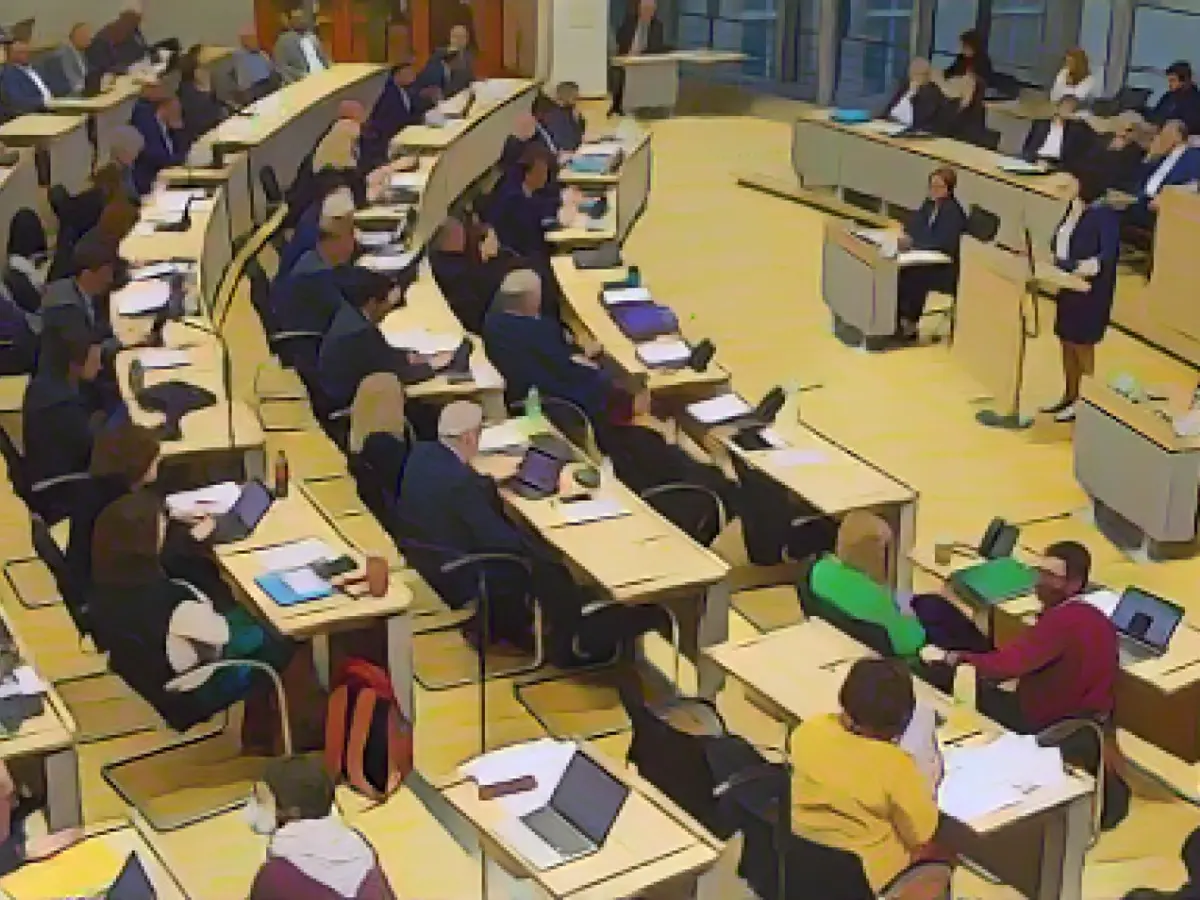The Green Party Avoids Asylum Controversy Within Ranks
In an anticipated showdown, the Green Party's federal conference averted a significant motion on asylum and migration policies. After three intense hours of discussion, the vocal majority declined to support the Green Youth's program text. This debate centered on the party's migration policies and its involvement in the government's asylum reforms.
Vice-Chancellor and key party figure, Robert Habeck, warned delegates against any attempts to sabotage the Greens' role within the governing coalition. He maintained that a failure to adhere to government policies could result in the end of their participation in the coalition. The opponents of Habeck's stance insisted that the party was heading towards the abolition of the right to asylum and the strengthening of right-wing parties in Germany and Europe.
Green Party Chairwoman, Ricarda Lang, echoed Habeck's sentiments, contending that by opposing the government's asylum policies, the Greens risk losing their influential positions at the bargaining table. Critics countered, asserting that the party's commitment to human rights and deterring refugees was being undermined.
Habeck's stance was met with a mixed response, receiving both applause and disapproval. Some delegates felt that his assertions were unduly pressuring the party, while others hailed his commitment to protecting the coalition and ensuring that the Greens maintain their critical role in shaping migration policies.
Supporters of the Green Youth motion argued that the prevalent factors contributing to financial and resource strains among municipalities and asylum authorities were not linked to the number of asylum seekers, but rather to inadequate budgetary provisions and poor allocation of resources. They implored the party to remain steadfast in its solidarity with refugees and refrain from succumbing to criticism by the conservative CDU/CSU and the far-right AfD.
The debate over the right tone to adopt in addressing asylum policies was an underlying theme in the discussions. Some delegates accused proponents of the Green Youth motion of employing inappropriate propaganda and adopting an unsuitable tone, which eroded the party's moral standing in the eyes of the public. Sentiments of strong support for foreign minister Annalena Baerbock and her advocacy for refugees became evident, with her being described as one of the EU's strongest champions for refugee rights.
Background enrichment:
The specifics of the federation delegates' conference in Karlsruhe are not detailed within the provided sources. However, the Green Party's stance on asylum policies can be ascertained by examining recent standout positions and speeches by its senior members.
Notably, German Vice-Chancellor and Federal Minister for Economic Affairs and Climate Action, Robert Habeck, has released a "security offensive" plan, aiming to tighten asylum laws and reduce illegal immigration. Habeck's plan includes measures such as speeding up asylum evaluations, implementing mental health assessments for applicants, and deporting dangerous individuals more consistently. However, this plan has drawn significant criticism for potentially infringing upon human rights and democratic values, with some viewing it as a means to divert worker discontent towards refugees.
Foreign Minister Annalena Baerbock, while associated with the coalition government's asylum and migration policies, has not issued any direct statements related to the Green Party's internal debate on asylum policies. Nevertheless, her fence-straddling position—combining a pro-refugee stance with support for a more secure border policy—may suggest a similar alignment with some of Habeck's strategies.
Enrichment insights:
Critics argue that Habeck's security offensive plan is part of a broader strategy to undermine democratic rights and human dignity. The plan's potential to reinforce right-wing parties' positions and weaken the working class is a significant concern. As the debate unfolds internally within the Green Party, it is essential to consider the potential consequences of adopting a more stringent approach to asylum policies and upholding the party's core values.








